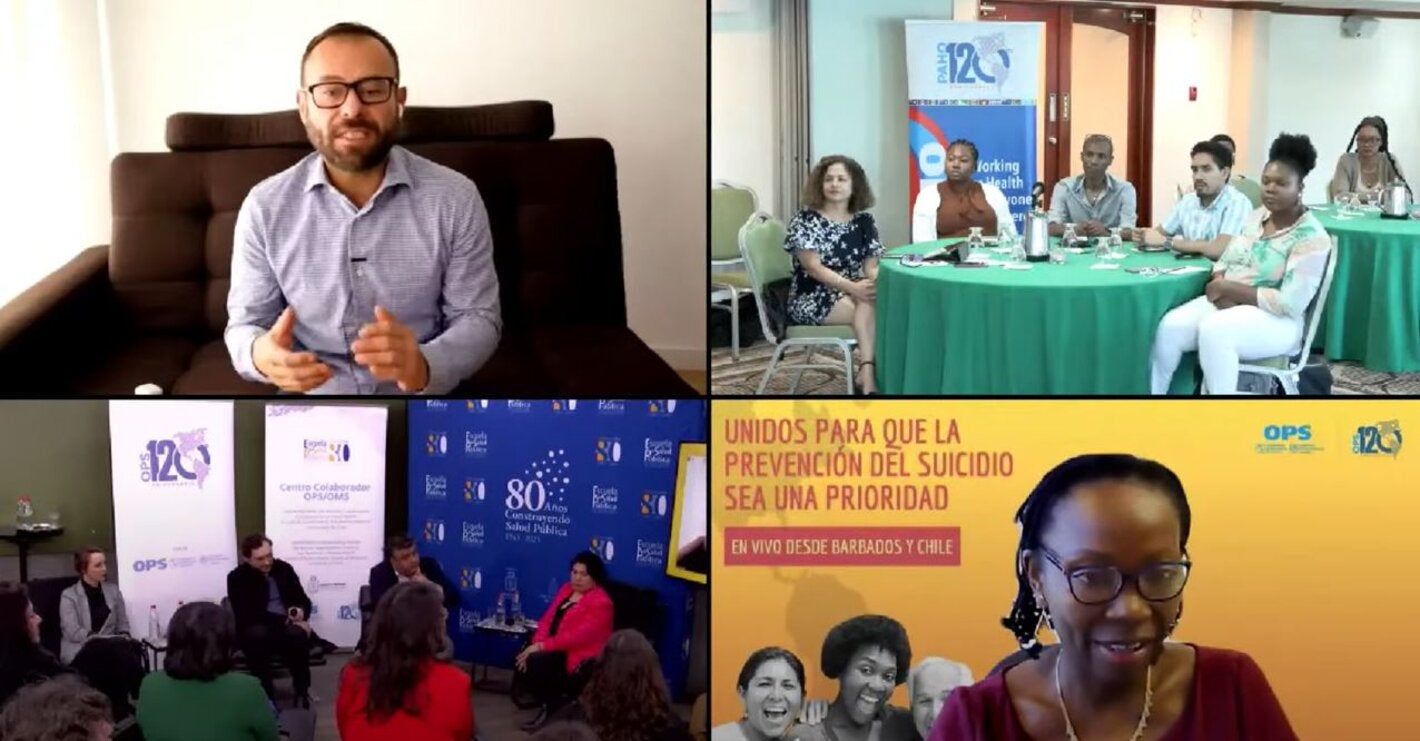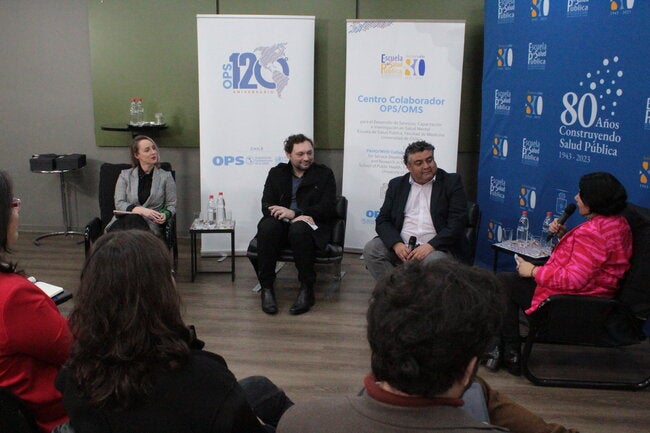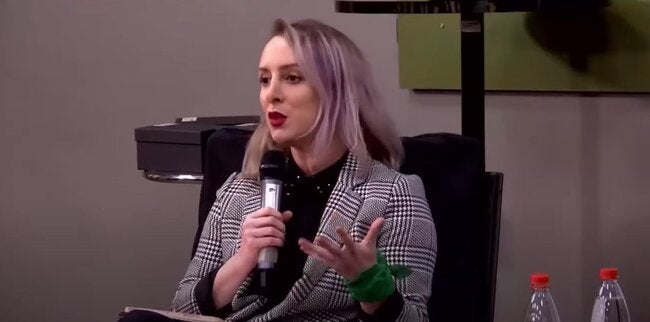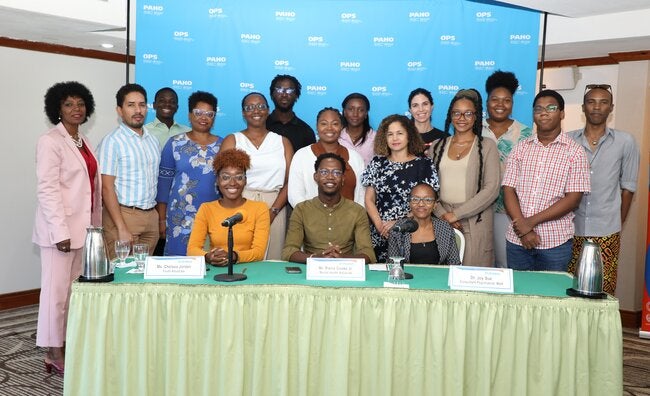
Washington, DC, September 12, 2023 (PAHO) - Within the framework of World Suicide Prevention Day, which takes place on September 10, the Pan American Health Organization (PAHO) organized a regional event to promote responsible information about suicide in the media and social networks, one of the main evidence-based strategies to prevent it.
The seminar brought together mental health specialists, journalists, academics, activists, and people with lived experience from Barbados and Chile, as well as PAHO experts, who connected from different places in the region.
“Suicide is a major public health problem for the Americas,” said Renato Olivera, head of the PAHO Mental Health Unit. “The data are staggering: between 2015 and 2019, more than 93,000 people in the region died by suicide each year and the suicide rate increased 17% in the same period, making the Americas the only WHO region to record an increase. ", he added.
Furthermore, he said, “the COVID-19 pandemic exacerbated many of the risk factors for suicide, such as unemployment, financial insecurity, and social isolation,” so “the battle against suicide requires a collective effort,” which includes accessible mental health services integrated into the first level of care, as well as eliminating the stigma about mental illnesses, one of the main obstacles to seeking help.
Patricio López, director of Radio Universidad de Chile, considered that addressing suicide prevention is part of the social responsibility of the media. “It is very important to emphasize prevention and not the news when a celebrity dies by suicide. Information about prevention is vital because we can emphasize people who have thought about the possibility of suicide, but who have managed to overcome that difficulty. “That generates a mirror effect that there is a way out,” he said.
José Miguel Labrín, director of the School of Journalism at the University of Chile, pointed out that “the training of future journalists is central to the comprehensive approach to a response in the media,” and added that the challenge is to achieve “coverage and increasingly responsible treatments, based on evidence, that follow up on public policies on the matter and where sensationalism is limited.”
In her turn, Dr. Joy Sue, a consultant psychiatrist at the Ministry of Health of Barbados, said that the health portfolio has developed, among other things, a mental health communication strategy to prevent suicide. “This strategy seeks to generate greater awareness through education and promoting suicide prevention support networks,” she said. “Effective implementation of the strategy is expected to help reduce stigma and increase help-seeking behaviors,” she added.
Sue further stated that her country's Ministry of Health is collaborating with PAHO/WHO, the Barbados Government Information Service and the media to develop a media policy on ethical coverage of suicide.
For the Chilean influencer and psychologist Nerea de Ugarte, mass communication, advertising and social networks affect the construction of identity and perpetuate, romanticize or naturalize gender stereotypes and certain mental health problems. “When we start to denunciate certain headlines and advertisements on the networks, we generate a space of belonging,” she said.
De Ugarte believes that social networks can be a safe and community space where people who have had suicidal ideas or behaviors can say: “that happened to me, you are not alone, if you are sad call this phone number.”
Avoid stigmatizing language, work with legitimate sources, compare information, cite legitimate testimonies, remember that behind the numbers there are human beings, base coverage on evidence, avoid sharing information about methods of committing suicide since it can be copied, avoid addressing the issue as a problem that affects the person individually, and providing information on care devices or help lines were some of the coverage recommendations mentioned by the participants.
Also participating in the webinar from Barbados was the PAHO representative for Barbados and the Eastern Caribbean Countries, Amalia Del Riego; Chelsea Jordan, youth advocate and vice president of operations at Let's Unpack It, and Pierre Cooke, a young man with lived experience. Also speaking from Chile were the PAHO representative in that country, Fernando Leanes, and Olga Toro Devia, director of the PAHO/WHO Collaborating Center for the Development of Services, Training and Research in Mental Health, of the School of Public Health of the University from Chile, among others.
This year, the World Health Organization (WHO) is updating the publication Preventing Suicide: A Resource for Media Professionals. The guide presents recommendations on the do's and don'ts of reporting suicide.
World Suicide Prevention Day was established in 2003 by the International Association for Suicide Prevention together with the WHO with the aim of focusing attention on the problem, reducing the stigma associated with it and raising awareness that suicide can be prevent. This year's theme “Creating Hope Through Action” is a call to action and a reminder that there is an alternative to suicide and that through action you can encourage hope and strengthen prevention.
You can watch the regional event again here:






